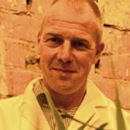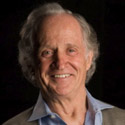Advisory Board and Editors Developmental Biology

Diaa Abd El-Moneim
My academic journey began with an MSc in Plant Breeding and Genetics at Suez Canal University, where my research focused on evaluating drought tolerance and disease resistance in wheat, providing a solid foundation in abiotic stress tolerance. This early work fueled my commitment to understanding and addressing plant resilience under stress conditions. Thanks to an Erasmus Mundus scholarship, I pursued my PhD at Complutense University of Madrid, where I investigated the molecular mechanisms underlying aluminum stress tolerance in rye. Notably, I was awarded a postdoctoral fellowship funded by AECID just before defending my thesis—a pivotal achievement that underscored the relevance of my research. This fellowship enabled me to join the National Center of Biotechnology (CNB) in Madrid. I gained expertise in proteomics, gene expression analysis, and molecular tool development to improve plant abiotic stress resilience. These experiences greatly expanded my knowledge of gene regulation and stress physiology and led to high-impact publications in peer-reviewed journals.
Dr. Abd El Moneim’s research encompasses multiple domains, including the study of morphological , physiological, and molecular mechanisms that govern plant responses to stress factors such as salinity, drought , aluminum toxicity, heat, and pathogens. His work in identifying gene families and stress-responsive proteins is complemented by his efforts to apply DNA barcoding and chloroplast genomic assemblies for species identification and development of molecular markers, as well as contributing to taxonomical and evolutionary concepts and identifying transcriptional regulators critical for stress adaptation, with particular emphasis on crops like wheat and wild plants adapted to extreme environments. His methodologies include designing and analyzing field trials , protein analysis, nucleic acid extraction, fingerprinting , GWAS , and the characterization of chloroplast genomes. Dr. Abd El Moneim’s expertise in molecular breeding and genomics focuses on improving abiotic stress tolerance in staple crops, especially for agriculture in developing countries.

Daniel Adesse
Has a bachelor's degree in Biological Sciences from the Universidade Santa Úrsula (2004), a Master's degree (2007) and PhD (2010) in Cellular and Molecular Biology from Fundação Oswaldo Cruz, with two periods as visiting scientist at the Departments of Pathology and Neuroscience of the Albert Einstein College of Medicine (Yeshiva University, New York, NY) With a post-doctoral degree from the Biophysics Institute (Federal University of Rio de Janeiro), under supervision of Prof. Rafael Linden (2010-2013).
Currently is Associate Researcher at the Oswaldo Cruz Foundation, where is investigating mechanisms of changes in embryonic development during congenital toxoplasmosis, with focus on the skeletal muscle system and Central Nervous System. In a model of mouse infection with Toxoplasma gondii investigates the effect that such infection causes to cerebral microcirculation and in the Blood-Brain Barrier, as a result of neuroinflammation. Has experience in Morphology, acting on the following subjects: parasite-host cell interaction, primary cell culture, cellular junctions, 2D and 3D cell culture models, Confocal and Transmission Electron Microscopy.

Praveen Arany
Training: Dentistry, Biomedical Research, Bioengineering, Pathology
Postdoctoral: TGF-beta, wound healing, regeneration, radiation biology, light biology, stem cells, biomaterial, Lasers.
Current: Clinical translational research and molecular mechanism.
Positions: Past-President, NAALT; President-Elect WALT, Co-Chair SPIE, Chair, ASLMS
Interests: Signal Transduction, Lasers, Biological regulation, Photobiomodulation.

Luisa Azevedo
Researcher at the School of Medicine and Biomedical Sciences (ICBAS), University of Porto, and collaborator of the Population Genetics and Evolution Group of i3S-Instituto de Investigação e Inovação em Saúde. Scientific topics include molecular basis of phenotype-genotype relationships, mechanisms underlying epistatic interactions under the compensatory mutation model, and the dynamics involved in amino acid substitution at the protein structural level.

Brian L Beatty
Dr. Brian Beatty is a comparative anatomist, paleobiologist at New York Institute of Technology. He is especially interested in convergent/unique evolution of aquatic amniotes to similar physiological constraints, as well as surface metrology and its relationship to underlying microstructure of bone, skin, and endothelia.

Gerrit T.S. Beemster
Professor of Biology at the University of Antwerp. Member of the Flemish Science Foundation review board. Editor of the journals Journal of Plant Research, Frontiers in Plant Science and PLOS ONE

Mina J. Bissell
Distinguished Scientist at Lawrence Berkeley National Laboratory, University Calif. Awards include ACS Medal of Honor, Lawrence Prize and Medal, Pezcollar-AACR Prize, Komen Foundation Brinker Award and Mina J. Bissell Award. More than 120 named and distinguished lectures. Past-President: American Soc. Cell Biology and Int. Society of Differentiation. Elected to the US National Academy, the IOM, American Philosophical Society, AAAS and the American Academy of Arts and Sciences

Dario T Bonetta
Associate professor in Faculty of Science at Ontario Tech University. Co-founder Metasys Genomics Corp. Interests include: biologically based materials derived from plant and bacterial sources; plant and animal development; inter-kingdom signalling and cell communication.

C. Titus Brown
Titus Brown received his BA in Math from Reed College in 1997, and his PhD in Developmental Biology at Caltech in 2006. He has worked in digital evolution, climate measurements, molecular and evolutionary developmental biology, and both regulatory genomics and transcriptomics. His current focus is on using novel computer science data structures and algorithms to explore big sequencing data sets from metagenomics and transcriptomics.

Viktor V. Brygadyrenko
Dr. Viktor Brygadyrenko is an Associate Professor in the Department of Zoology and Ecology at Oles Honchar Dnipro National University.
His main scientific projects include:
- Effect of heavy metal ions on the development of invertebrates.
- Morphological variability in populations of beetles in conditions of anthropogenically altered ecosystems.
- Trophic relations of species in litter macrofauna of Ukraine.
- Structure of litter macrofauna communities in forest ecosystems of Ukraine.
- Influence of medicinal plants, flavourings and source materials, approved for use in and on foods, on eggs and larvae of nematodes of mammals.
- Ecological niches of ground beetles (Coleoptera, Carabidae) in Ukraine.
- Morphometric variation in ground beetles.

Mario R. Capecchi
Professor of Human Genetics at the University of Utah School of Medicine;
Distinguished Professor of Human Genetics and Biology;
Nobel Prize in Physiology or Medicine 2007;
Member of the National Academy of Sciences & the European Academy of Sciences.
Recipient of many awards including the Kyoto Prize in Basic Sciences; the Albert Lasker Award for Basic Medical Research; the National Medal of Science; the Wolf Prize in Medicine; the March of Dimes Prize in Developmental Biology; and the Nobel Prize in Physiology and Medicine with Smithies and Evans.

Julieta Carril
Dr. Julieta Carril is a researcher at the CONICET (National Scientific and Technical Research Council), Argentina. Working at the Laboratory of Histology and Descriptive, Experimental and Comparative Embryology (LHYEDEC), Faculty of Veterinary Sciences, National University of La Plata, Argentina. Her research focuses on the role of developmental reprogramming processes in the morphological evolution of Neornithes birds. Dr. Carril is also a member of the Avian Biomorphodynamic Research Group (ABRG)

